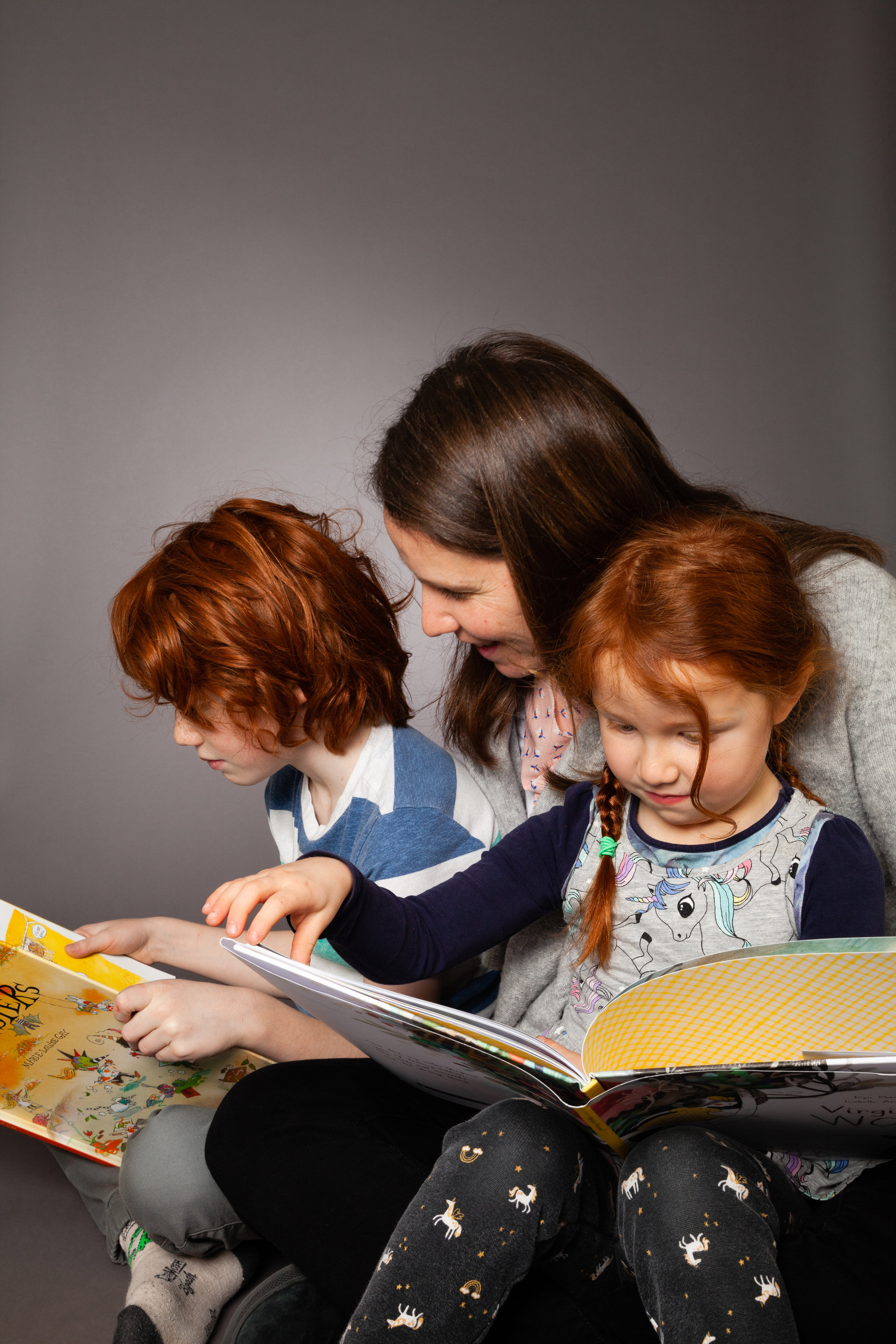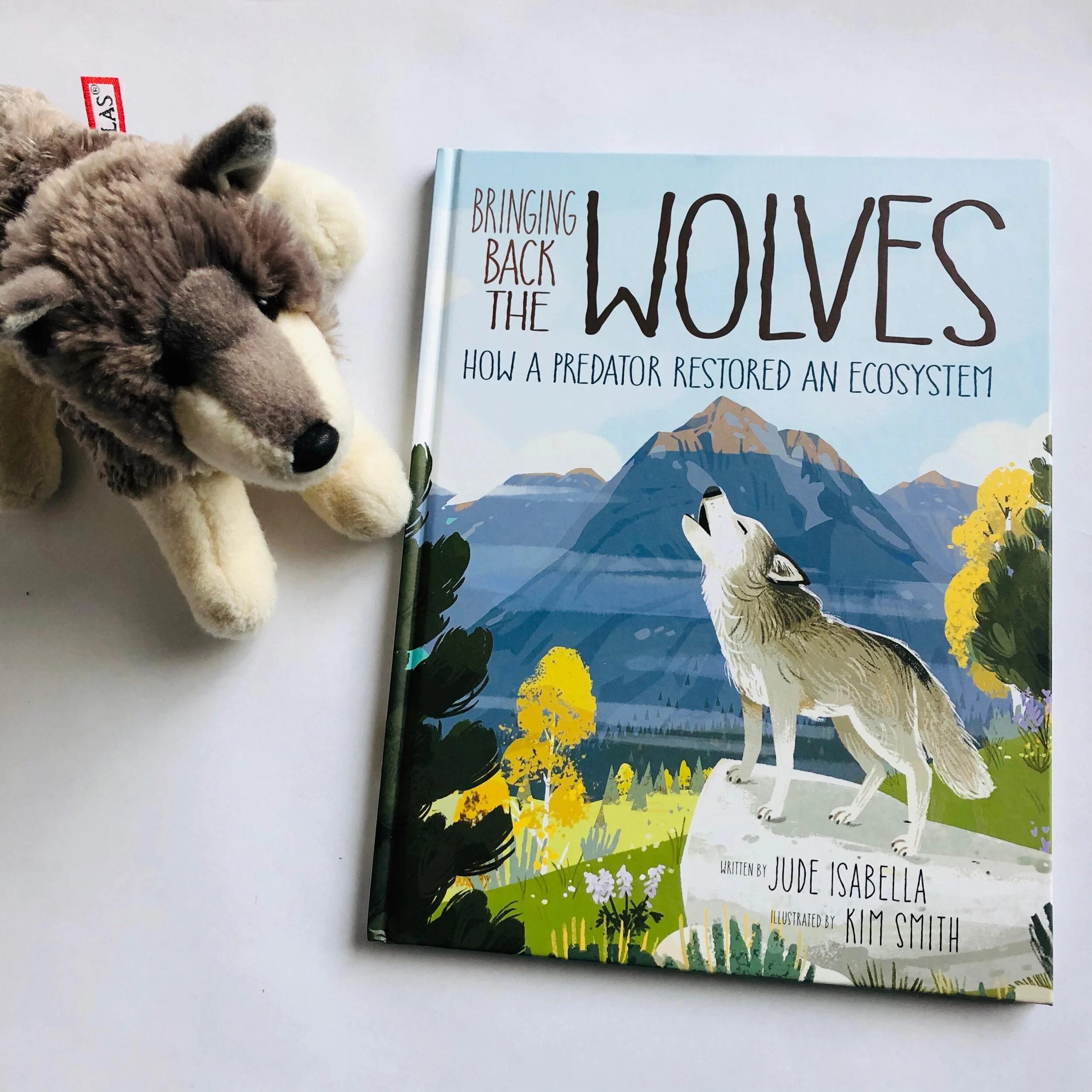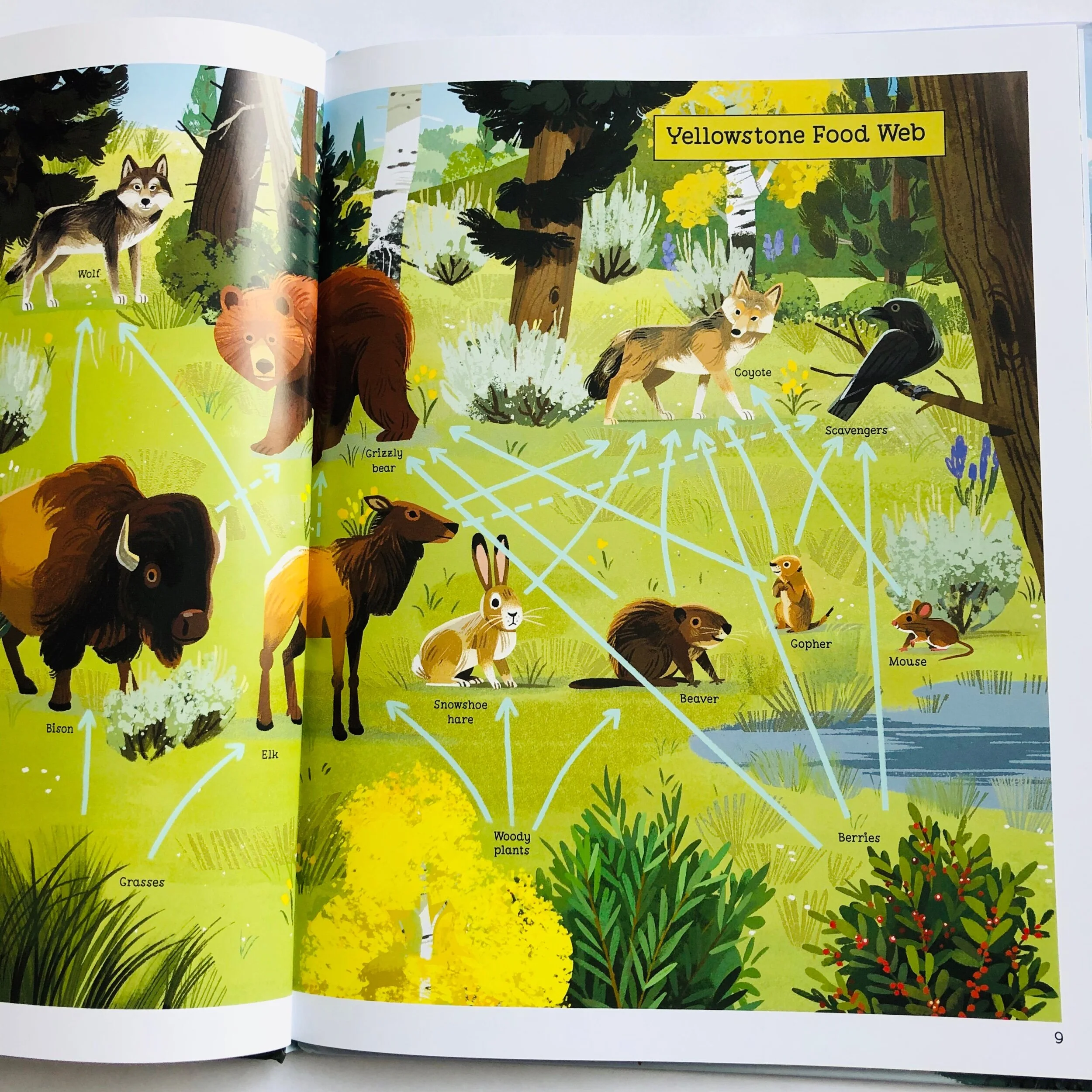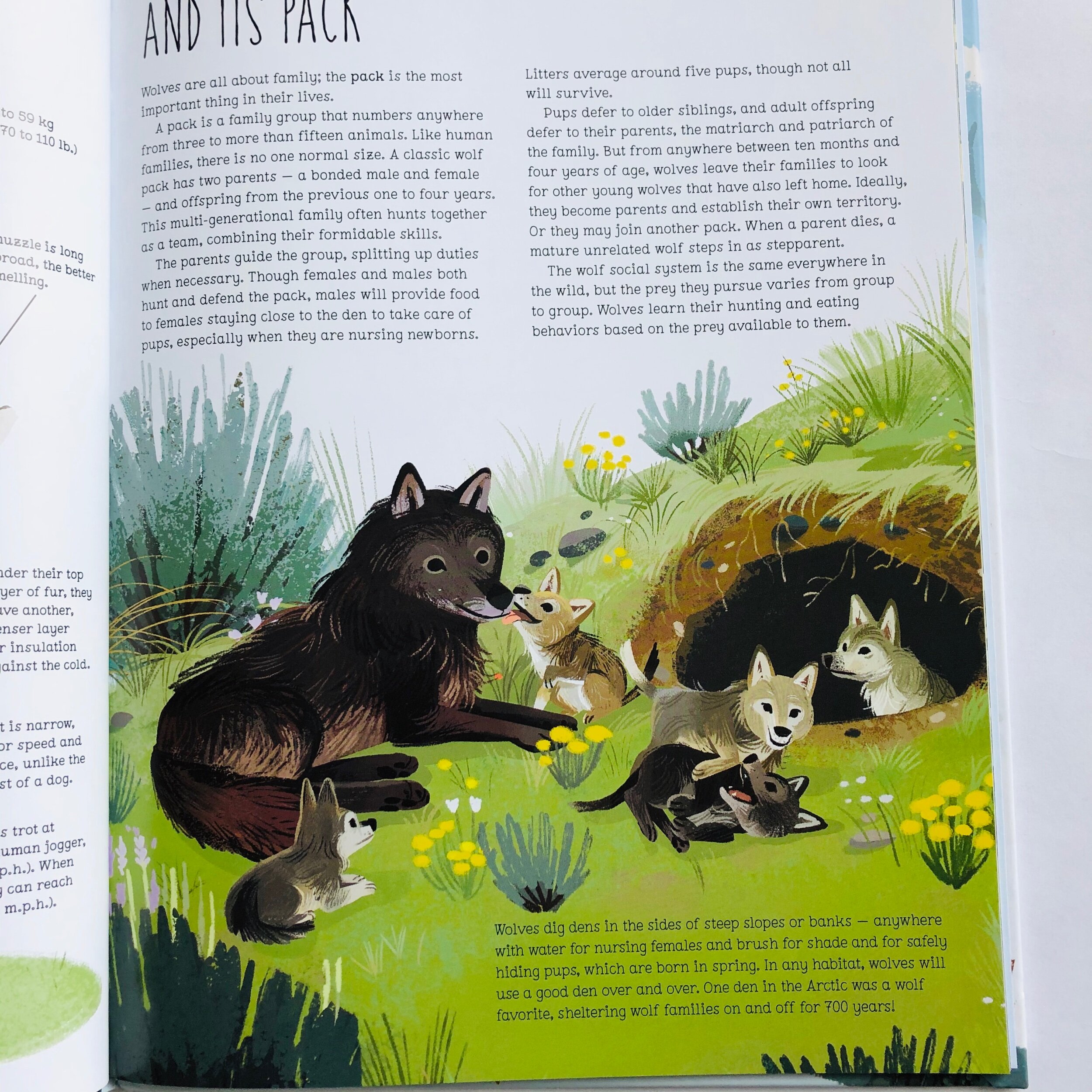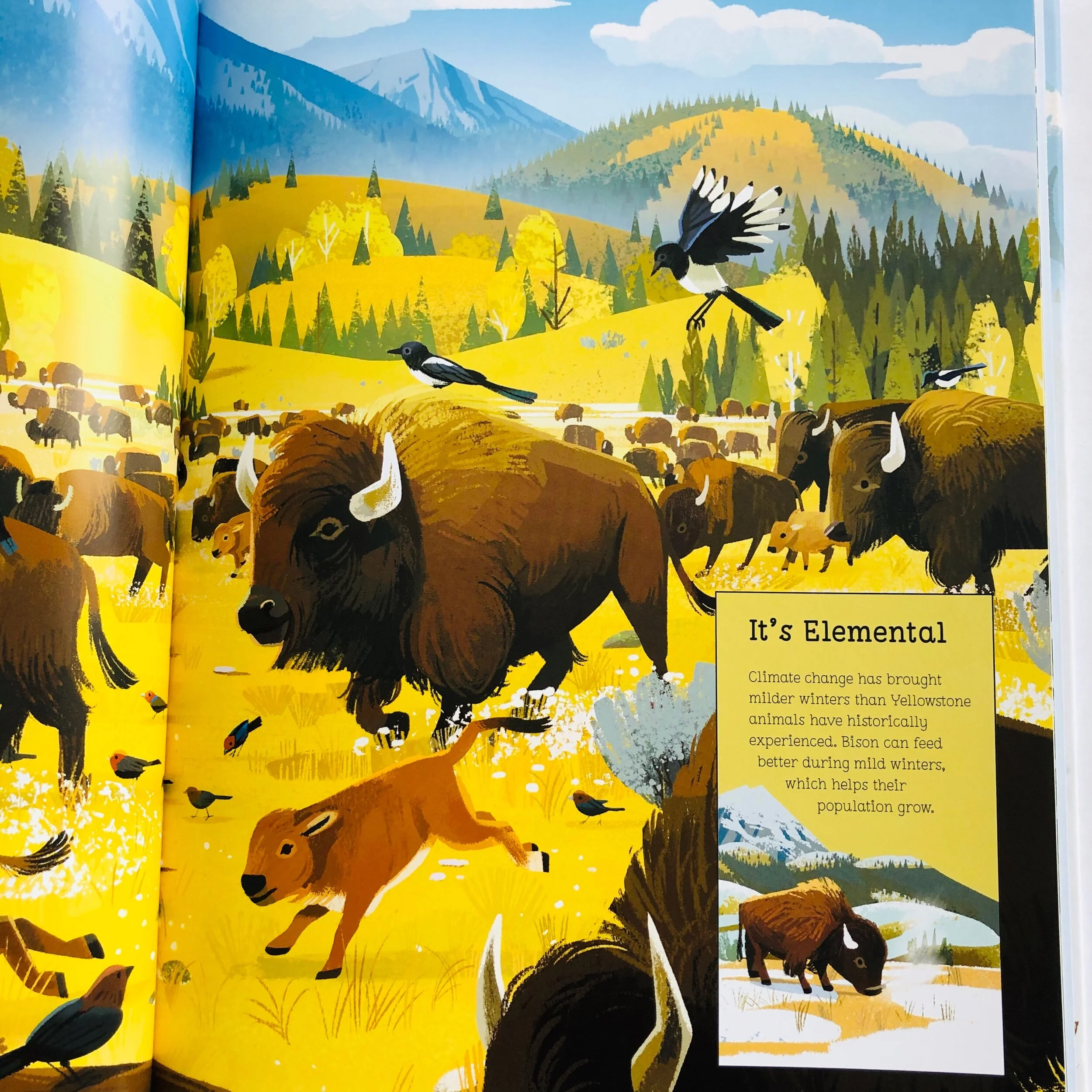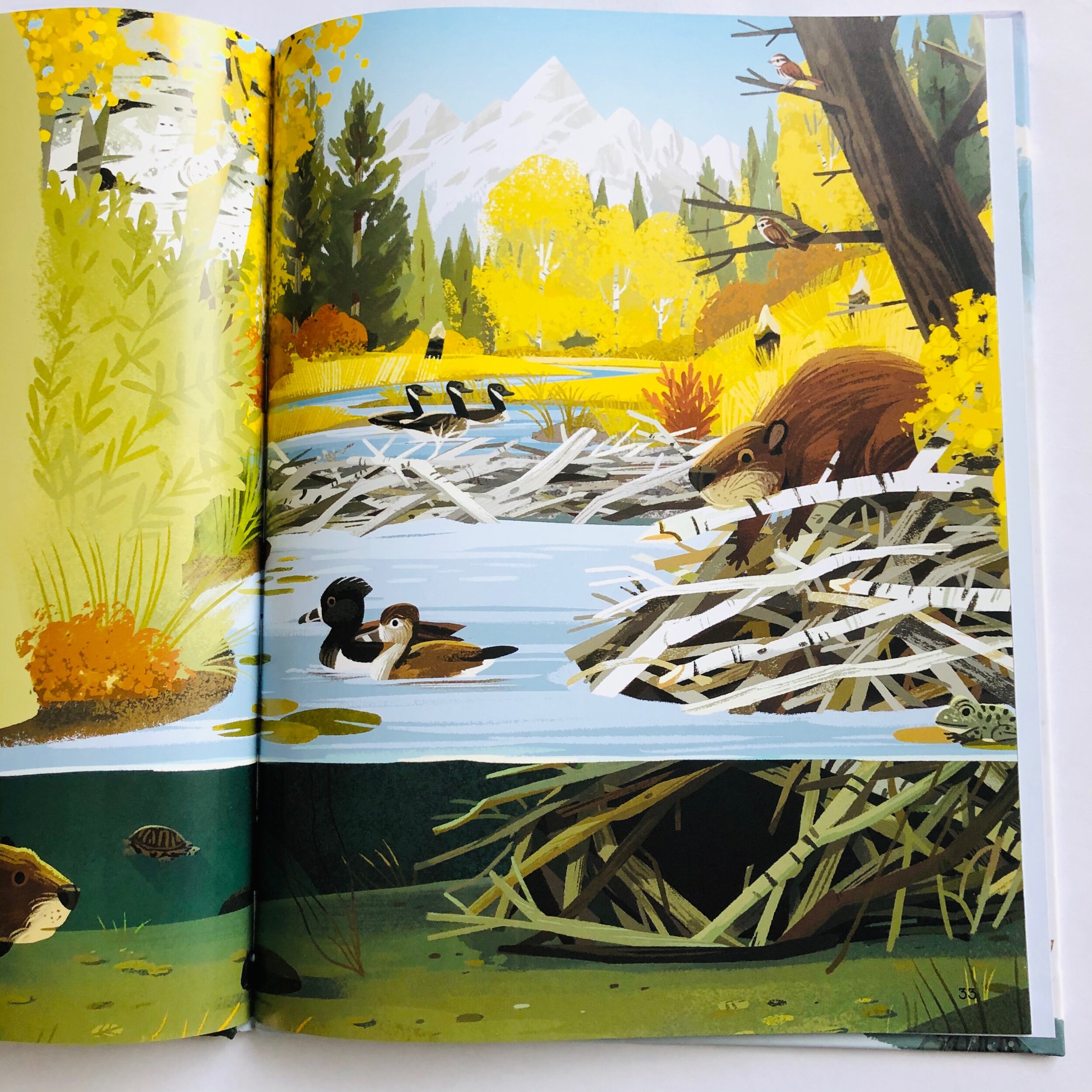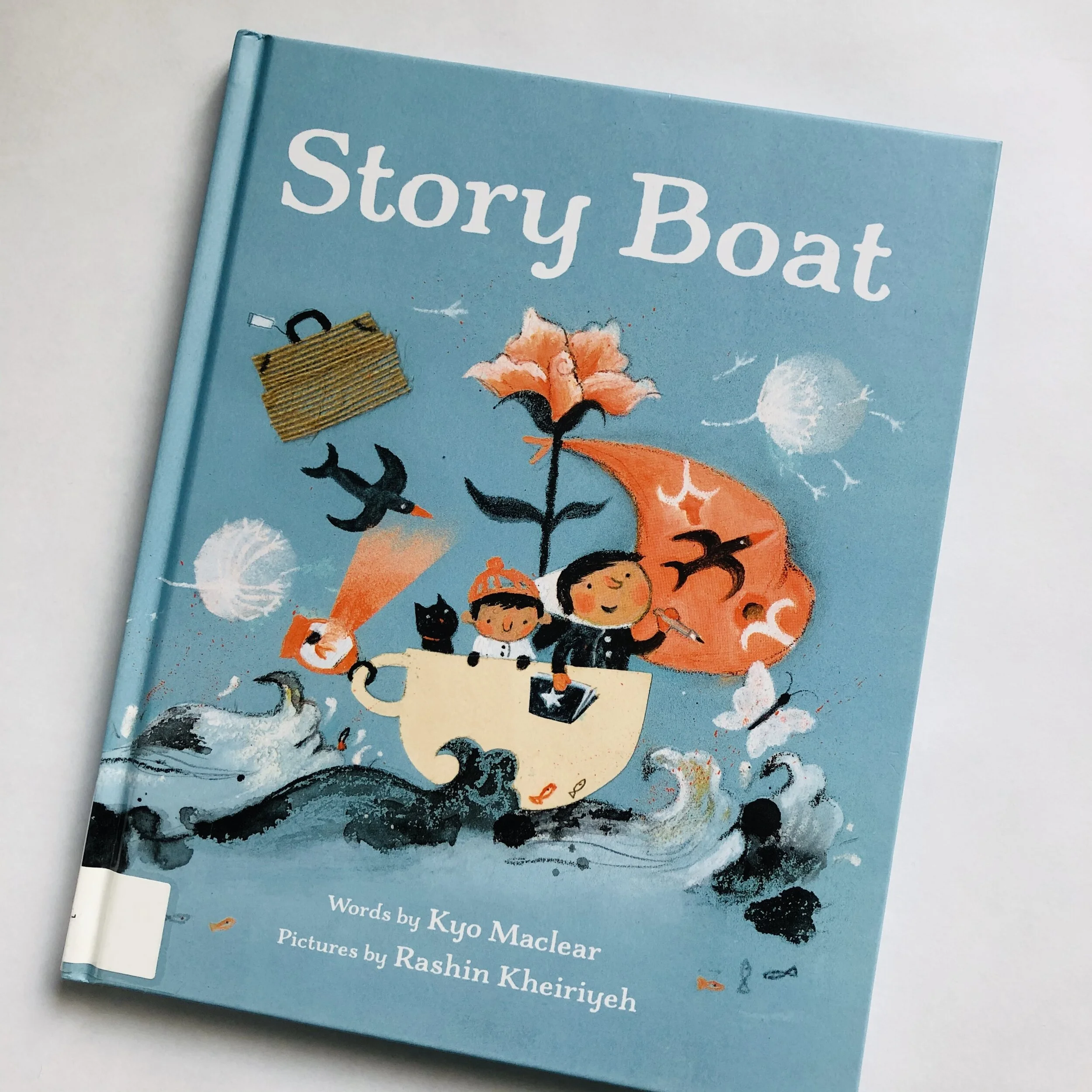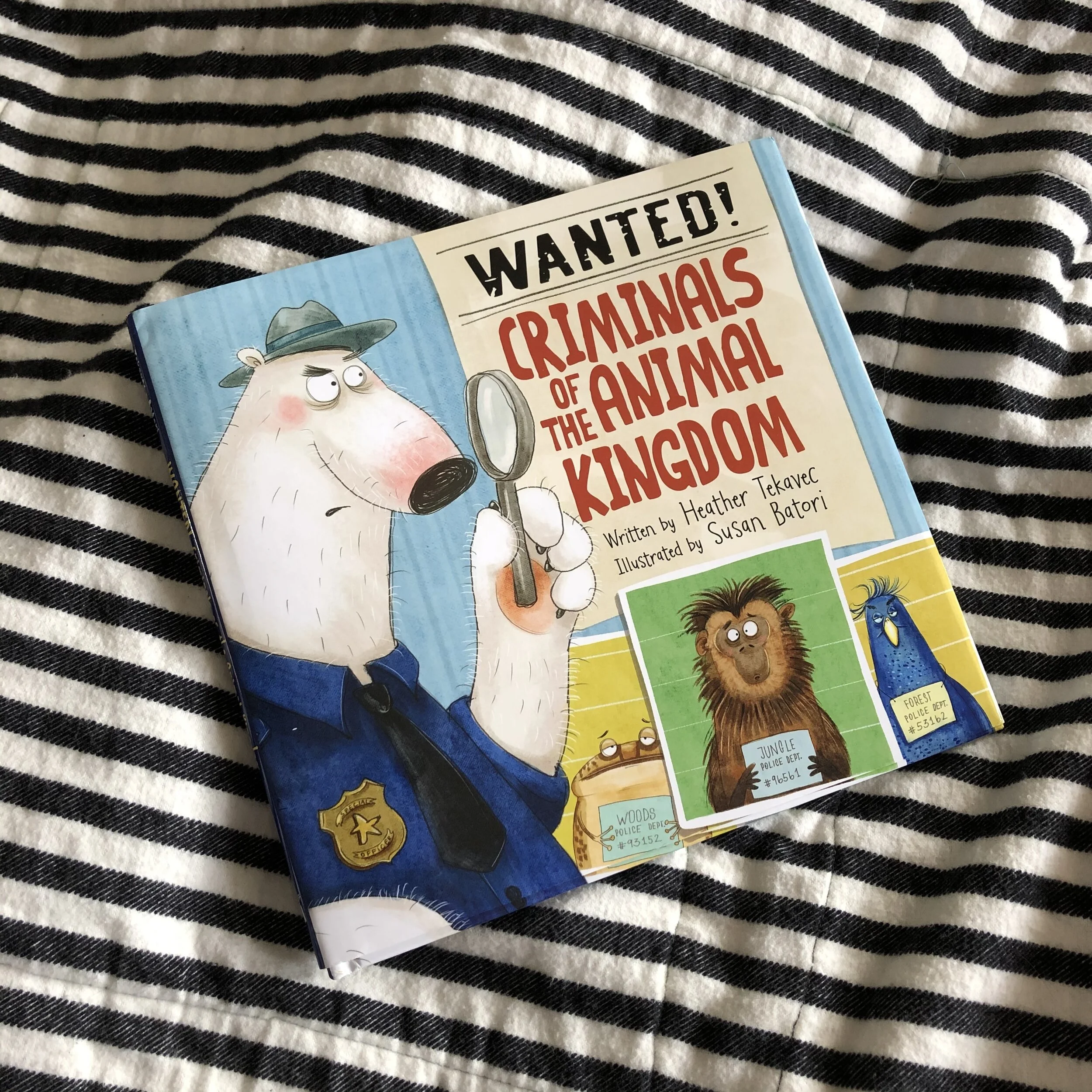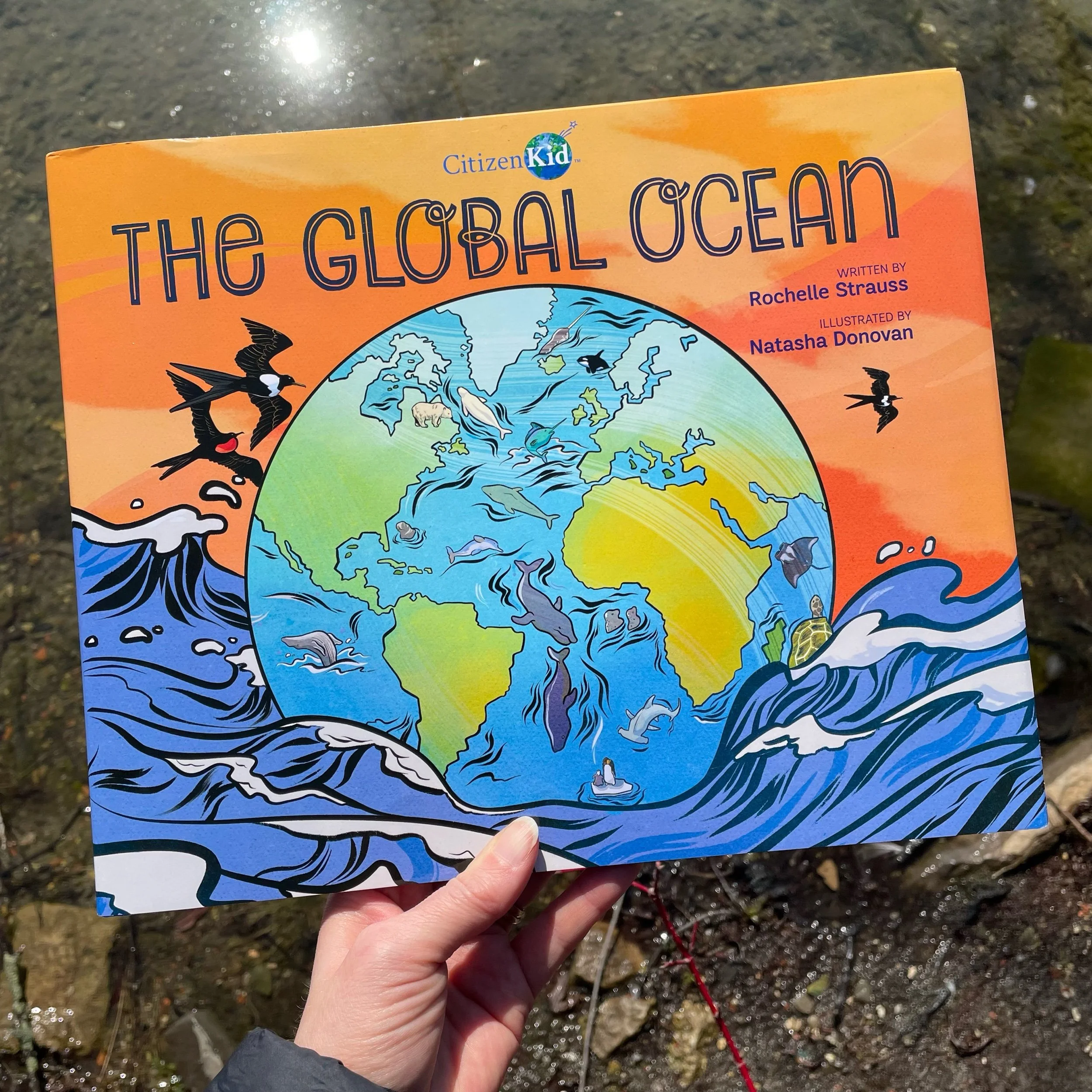Bring Back Biodiversity
Kids Can Press has an incredible assortment of non-fiction books this publishing season. Bringing Back the Wolves by Jude Isabella and Kim Smith is a fascinating journey through Yellowstone National Park and the impacts of biodiversity within an ecosystem.
You may have learned in school the importance of biodiversity in science class when you were younger. I seem to recall a lot of overheads projected for us to copy down food webs and chains, never really grasping the full picture of what it would mean if we suddenly lost an important species within an ecosystem. Jude Isabella takes us through the impact of overhunting the wolves, an apex predator, in Yellowstone in the early 1900s. What an important non-fiction text to have to help children learn the impact of even a small change in the diversity of an ecosystem. You would think getting rid of wolves would be great, not as much livestock being lost. However, through the book you will learn the direct and indirect impacts of no wolves. We learn how it affected the ungulate population, the trees, the coyote and raven, even all the way down to the insects. Once wolves were introduced back into the park, the ecosystem once again began to flourish.
The illustrations by Kim Smith make this one of those special non-fiction books you will hold on to for a long time. The illustrations are realistic with soft edges. So much colour and full page spreads bring the story of the wolves of Yellowstone National Park to life.
On a side note, to further reinforce the importance of biodiversity and how an ecosystem can be self sustaining once everything is in balance, check out the Netflix documentary The Biggest Little Farm. It’s a documentary even young children will enjoy, seeing how all species can live in harmony with each other once you find the right balance.
Bringing Back the Wolves share an extremely important lesson in this age of climate change and global living. You can apply the lessons learned about the wolves to many other facets of living on planet Earth. Children will understand the necessity of diversity in life, to keep everything in balance.
